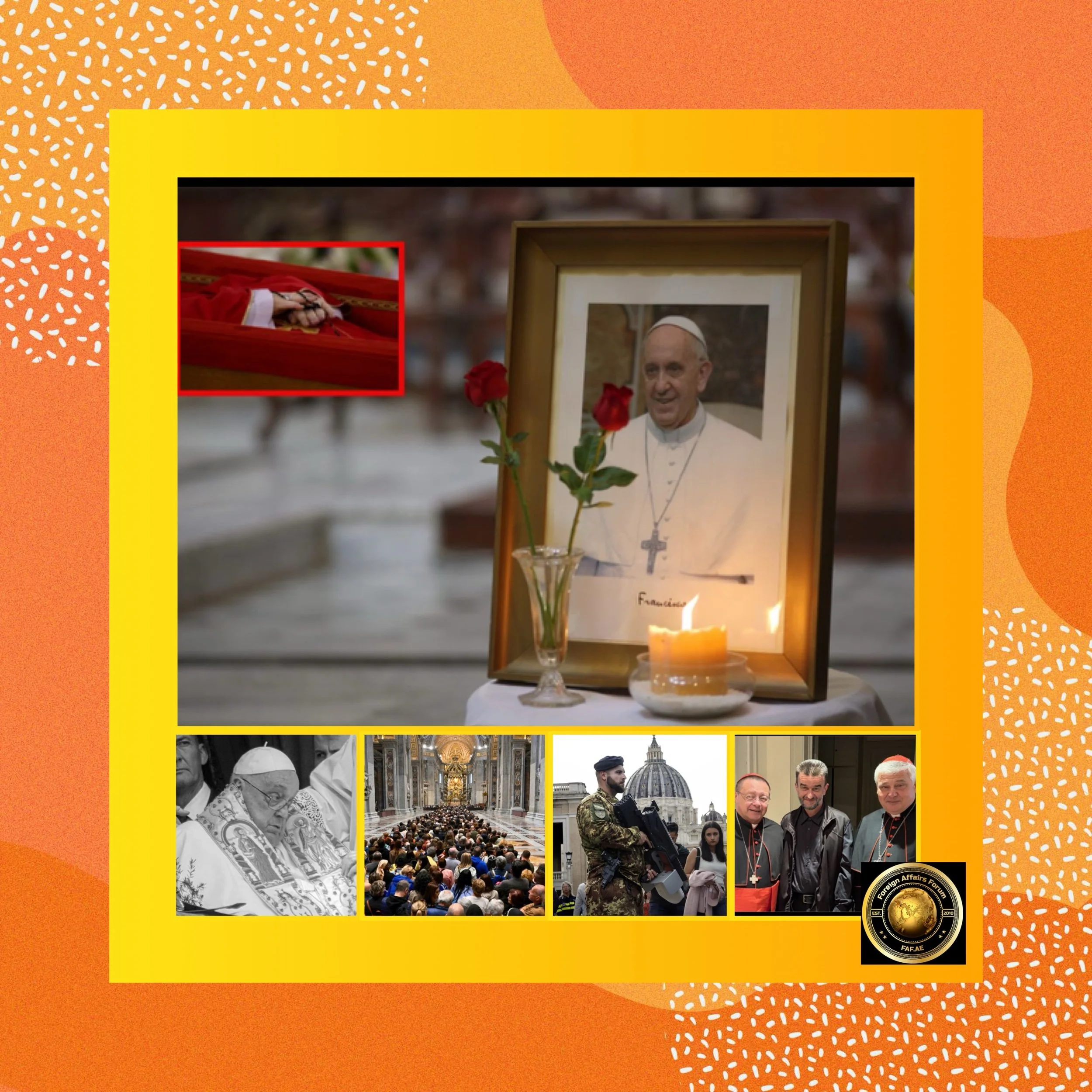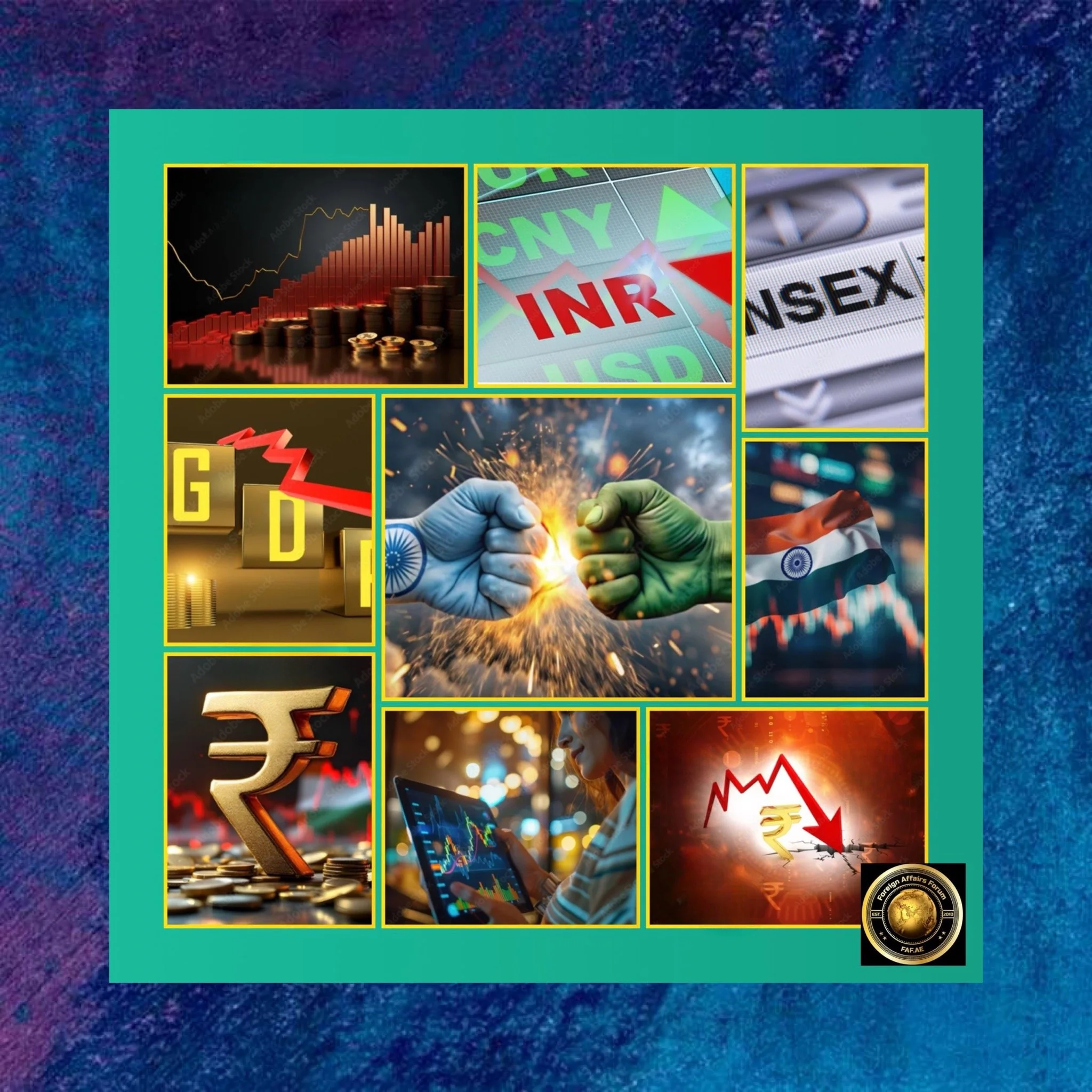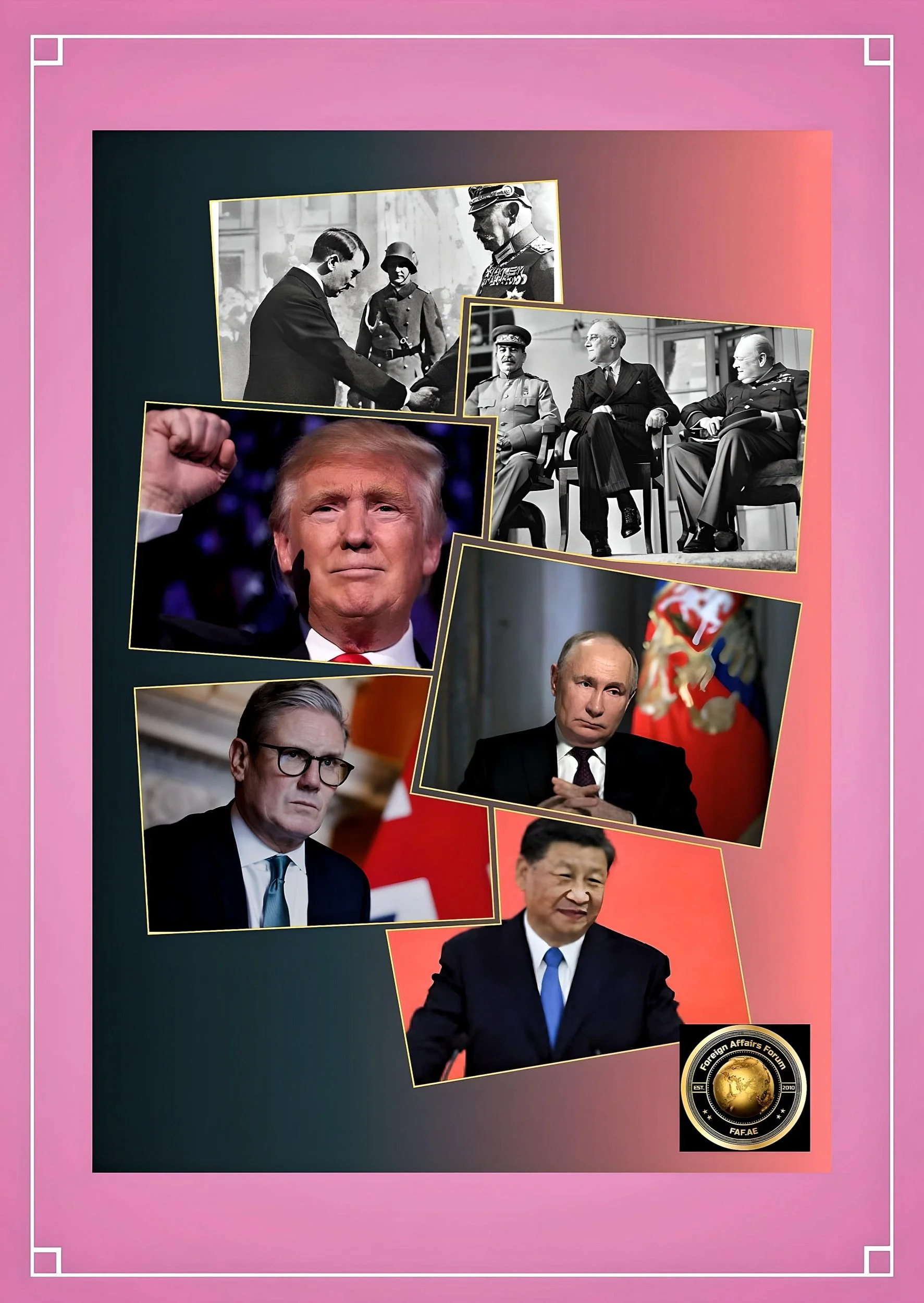Farewell to Pope Francis: The World Gathers in Rome
Introduction
As tens of thousands of mourners flood into Rome, the world prepares to bid farewell to Pope Francis, who passed away on Easter Monday at the age of 88.
His funeral, scheduled for Saturday, April 26, marks the end of a transformative 12-year papacy characterized by humility, advocacy for the marginalized, and efforts to reform the Catholic Church.
FAF examines the global response to his passing, the personal moments of his final days, the question of succession, and his enduring legacy.
The Pontiff’s Final Days and Moments
Pope Francis’s last public appearance occurred on Easter Sunday, just one day before his death.
Despite his medical team's concerns about his health as he recovered from pneumonia, the Pope insisted on riding in the popemobile through St. Peter’s Square to greet the faithful after delivering his “Urbi et Orbi” blessing.
Before embarking on this final journey, he hesitated momentarily and asked his healthcare assistant, Massimiliano Strappetti, “Do you think I can manage it?”
After connecting with the crowd and especially embracing children during this farewell ride, Francis returned to his quarters and expressed his gratitude to Strappetti with the poignant words: “Thank you for bringing me back to the Square.”
These final words reveal his deep commitment to maintaining a connection with the faithful until the end.
Following a peaceful Sunday afternoon and a quiet dinner, the Pope showed the first signs of illness around 5:30 AM on Monday.
Approximately an hour later, after making a farewell gesture to Strappetti, he fell into a coma in his apartment at Casa Santa Marta and passed away shortly thereafter.
Those present during his final moments reported that he did not suffer; his death came quickly and peacefully.
Global Mourners Descend on Rome
Rome has transformed into the epicenter of global mourning, with visitors describing a unique, “thoughtful” atmosphere pervading the city.
Hotels throughout the capital have experienced a surge in bookings, particularly from international delegations arriving for the funeral.
The Betto Hotel Atlico, a family-owned establishment near the central train station, has dramatically increased reservations, especially for its upscale penthouse suites.
By Friday midday, nearly 150,000 people from around the world had visited St. Peter’s Basilica to pay their final respects to the Pope. His body lies in state, dressed in a red chasuble, white miter, and black shoes with a rosary wrapped around his fingers.
Mourners have waited in long queues for hours, sometimes extending from Via della Conciliazione to the heart of the Vatican.
The Vatican has announced that more than 130 delegations, including 50 heads of state and 10 reigning monarchs, are expected to attend Saturday’s funeral.
Notable attendees include U.S. President Donald Trump, Ukrainian President Volodymyr Zelenskyy, French President Emmanuel Macron, U.K. Prime Minister Keir Starmer, and Prince William.
For security purposes, Italian authorities have implemented extraordinary measures, including stationing snipers on rooftops, deploying drones for aerial surveillance, and positioning military equipment to counter potential threats.
Personal Tributes and Emotional Farewells
The passing of Pope Francis has evoked profound emotional responses from people of various backgrounds. A young pilgrim at St. Peter’s Square shared, “I had to come to say goodbye to a man who taught me to look at others with compassion. " An elderly man nearby remarked, “He always smiled, even in illness. His joy was contagious.”
For Argentines, the farewell carries an additional layer of significance as they say goodbye to a compatriot who never returned to his homeland after assuming the papacy in 2013.
Marcelo Bruno drove from Syracuse in Sicily to Rome specifically to pay his respects, noting that “this is an occasion that I think goes beyond faith and spirituality.”
Another Argentine, Ramiro Lopez, described Francis as a “very political pope” who consistently advocated for the underprivileged.
In a particularly touching arrangement, approximately 40 individuals representing those closest to Pope Francis’s heart poor, homeless, prisoners, migrants, and transgender people gather at Santa Maria Maggiore Basilica on Saturday morning to pay a special tribute before his burial.
Each will hold a white rose as they bid farewell to the man who Bishop Benoni Ambarus described as being “surrounded by his favourite children” even in death.
The Question of Succession
Following the nine-day mourning period, approximately 135 cardinals under the age of 80 will gather for a conclave to elect Pope Francis’s successor.
According to Church regulations, this conclave cannot begin before May 6, and during this time, the cardinals will be completely isolated from the outside world until a new pope is chosen.
Vatican observers and analysts are already watching for clues about potential candidates. Cardinal Giovanni Battista Re’s sermon at the funeral Mass may provide subtle indications about the direction the Church might take.
Although predictions remain speculative, Italian Cardinal Pietro Parolin, who served as the Vatican’s second-in-command for most of Francis’s papacy, has been mentioned as a leading contender by multiple sources.
Cardinal Luis Antonio Tagle from Asia, known for his advocacy for the underprivileged similar to Francis, has also been highlighted as a possible successor.
The selection process will unfold amid much speculation, but as Vatican journalist John Thavis noted, “Interpreting the signs before the conclave to determine papal candidates is challenging, as these indicators are often quite subtle”.
Pope Francis’s Enduring Legacy
Throughout his 12-year papacy, Pope Francis left an indelible mark on both the Catholic Church and global affairs.
His environmental advocacy culminated in the 2015 encyclical Laudato Si’, which emphasized the moral imperative to address climate change and environmental degradation.
He made significant strides toward a more inclusive Church through initiatives like the Synod on Synodality (2023-2024), which allowed women to vote in a Synod of Bishops for the first time.
On the diplomatic front, Francis played a crucial role in restoring relations between the United States and Cuba in 2014 and met with Russian Orthodox Patriarch Kirill in 2016, marking a significant step in Catholic-Orthodox relations.
His commitment to mercy and compassion manifested in the Extraordinary Jubilee of Mercy from December 2015 to November 2016.
Pope Francis also took strong moral positions on controversial issues, revising the Catechism in 2018 to declare the death penalty inadmissible in all cases.
He confronted the Church’s difficult past by addressing clergy sexual abuse, convening a summit in 2019 and implementing reforms to enhance accountability.
In 2022, he traveled to Canada to apologize for the Church’s role in the abuses at residential schools, acknowledging the suffering of Indigenous communities.
Throughout his papacy, Francis maintained a commitment to simplicity and humility, choosing to live in the Vatican’s Santa Marta guesthouse rather than the Apostolic Palace and opting for more modest papal attire.
This commitment to humility extends to his final wishes-to be buried in Santa Maria Maggiore Basilica rather than in the traditional crypt beneath St. Peter’s.
Conclusion
As the world prepares for Pope Francis’s funeral, his legacy of compassion, humility, and advocacy for the marginalized remains at the forefront of global consciousness.
The extraordinary gathering of world leaders, ordinary faithful, and the pope’s “favourite children”-the poor and marginalized-underscores the broad impact of his papacy across diverse communities and traditions.
The conclave to elect his successor will soon commence, but regardless of who next occupies the Chair of St. Peter, Pope Francis’s distinctive approach to leadership and his unwavering commitment to those on society’s margins have permanently altered expectations for the papacy.
As one mourner poignantly expressed, his passing feels like losing “a father” who challenged the faithful and the world at large to embrace compassion, mercy, and radical inclusion.






